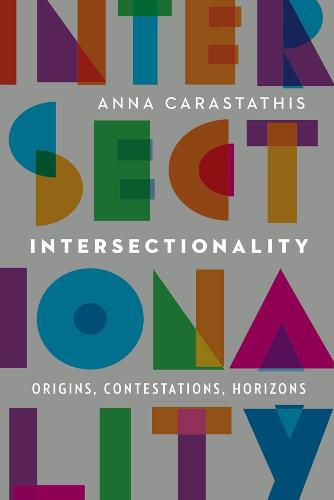Readings Newsletter
Become a Readings Member to make your shopping experience even easier.
Sign in or sign up for free!
You’re not far away from qualifying for FREE standard shipping within Australia
You’ve qualified for FREE standard shipping within Australia
The cart is loading…






A 2017 Choice Outstanding Academic Title
Intersectionality intervenes in the field of intersectionality studies: the integrative examination of the effects of racial, gendered, and class power on people’s lives. While intersectionality tends to circulate merely as a buzzword, Anna Carastathis joins other critical voices in urging a more careful reading. Challenging the narratives of arrival that surround it, Carastathis argues that intersectionality is a horizon, illuminating ways of thinking that have yet to be realized; consequently, calls to go beyond intersectionality are premature. A provisional interpretation of intersectionality can disorient habits of essentialism, categorical purity, and prototypicality and overcome dynamics of segregation and subordination in political movements.
Through a close reading of critical race theorist Kimberle Williams Crenshaw’s germinal texts, published more than twenty-five years ago, Carastathis urges analytic clarity, contextual rigor, and a politicized, historicized understanding of this pervasive concept. Intersectionality’s roots in social justice movements and critical intellectual projects-specifically black feminism-must be retraced and synthesized with a decolonial analysis so that its potential to actualize coalitions can be enacted.
$9.00 standard shipping within Australia
FREE standard shipping within Australia for orders over $100.00
Express & International shipping calculated at checkout
A 2017 Choice Outstanding Academic Title
Intersectionality intervenes in the field of intersectionality studies: the integrative examination of the effects of racial, gendered, and class power on people’s lives. While intersectionality tends to circulate merely as a buzzword, Anna Carastathis joins other critical voices in urging a more careful reading. Challenging the narratives of arrival that surround it, Carastathis argues that intersectionality is a horizon, illuminating ways of thinking that have yet to be realized; consequently, calls to go beyond intersectionality are premature. A provisional interpretation of intersectionality can disorient habits of essentialism, categorical purity, and prototypicality and overcome dynamics of segregation and subordination in political movements.
Through a close reading of critical race theorist Kimberle Williams Crenshaw’s germinal texts, published more than twenty-five years ago, Carastathis urges analytic clarity, contextual rigor, and a politicized, historicized understanding of this pervasive concept. Intersectionality’s roots in social justice movements and critical intellectual projects-specifically black feminism-must be retraced and synthesized with a decolonial analysis so that its potential to actualize coalitions can be enacted.